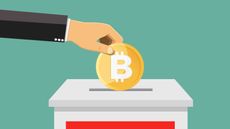
Lisa Gerstner
Lisa has been with Kiplinger Personal Finance magazine for more than 15 years and became editor in June 2023. She started with Kiplinger as an American Society of Magazine Editors intern in 2006, was hired as a copy editor in 2007 and later began reporting and writing on a range of personal-finance topics, including credit, banking and retirement. For several years, she compiled the magazine’s annual rankings of the best rewards credit cards and the best banks, and she assembled the survey and results for Kiplinger’s first Readers’ Choice Awards in 2023.
Lisa has shared her expertise as a guest with many media outlets around the nation, including the Today Show, CNN, Fox, NPR and Cheddar.
Lisa was an Honors College student at Ball State University, in Muncie, Ind., and graduated summa cum laude with a degree in magazine journalism and history. During her time as a student, she was editor-in-chief of the campus magazine and an intern at the Indianapolis Business Journal as well as her hometown newspaper, the Wapakoneta Daily News. She received Ball State’s “Graduate of the Last Decade” award in 2014.
A military spouse, Lisa experiences firsthand the financial challenges and opportunities for military families. Born and raised in Ohio, she has moved around the U.S. - from Washington, D.C., to Las Vegas to southern New Mexico – and currently lives in the Philadelphia area with her husband and two sons. When she finds free time, she loves to travel (especially to national parks), hike, try new recipes in the kitchen, and get on the mat to practice yoga.
Latest articles by Lisa Gerstner
-

Best Business Credit Cards 2023
Credit Cards Small business credit cards can be great tools to earn hundreds of dollars of rewards.
By Lisa Gerstner
Credit Cards -

Best Credit Cards for Bad Credit 2023
If used wisely, these credit cards can help you dig out of bad credit; you may even earn 2% cash back.
By Lisa Gerstner
-

Best 0% APR Credit Cards 2023
Kiplinger's guide to the best 0% APR credit cards. Pay no interest on large purchases for up to 21 months.
By Lisa Gerstner
-

Best Balance Transfer Credit Cards 2023
Balance transfer credit cards have the power to drastically cut your payments with 0% APR. But there’s a cost, and rules to follow.
By Lisa Gerstner
-

21 Great Ways To Use $1,000
Kiplinger experts present over 20 ways to use $1,000, from long-term investing to smart vacation planning.
By Anne Kates Smith
-

Best Student Credit Cards 2023
Students can get hundreds of dollars in cash back while they build credit with these offers from popular issuers.
By Lisa Gerstner
-

Airline Ticket Prices Are Coming Down to Earth
Domestic airline prices are on the decline in fall 2023, finally retreating after spiking just a year ago. International fares are still high.
By Lisa Gerstner
-

Know Why Your Credit Score Changes: 9 Money Moves to Consider
credit & debt Your credit score is a key indicator of your financial well-being and of the risk you pose to lenders. How good is yours?
By Lisa Gerstner
credit & debt -

A Fresh Look for Kiplinger Personal Finance
The magazine has undergone its first total redesign in several years — but our mission of providing sound financial advice hasn’t changed.
By Lisa Gerstner
-

How to Deal With Nanny Taxes
Hiring full-time help, such as a nanny, requires financial obligations to pay certain taxes. Here's how to keep track of what you're responsible for.
By Lisa Gerstner
-

Kiplinger Readers' Choice Awards 2023 Results
Kiplinger Readers' Choice Awards The results are in for the Kiplinger Readers’ Choice Awards — celebrating the best products and services in personal finance.
By Lisa Gerstner
Kiplinger Readers' Choice Awards -

What to Consider Before Buying a Vacation Home
Smart Buying If you're thinking of buying a vacation home, we've got a guide on what to expect.
By Lisa Gerstner
Smart Buying -

Money Market Account or Money Market Fund? How to Choose
money market accounts Whether you choose a money market account or money market fund largely depends on the money's purpose.
By Lisa Gerstner
money market accounts -

Kiplinger's Credit Card Methodology
Kiplinger's Credit Card Methodology: How We Choose our Rewards Credit Cards
By Lisa Gerstner
-

Is a CCRC Right for You?
Continuing-care retirement communities (CCRCs) provide a range of amenities and health care when you need it—at a hefty cost.
By Lisa Gerstner
-

Why a Target-Date Fund Works for Me
investing Target-date funds are attractive for their simplicity. And while I've invested in one in the past, that doesn't mean it's the right choice for you.
By Lisa Gerstner
investing -

The Retiree's Guide to Going Back to Work
Making Your Money Last Inflation and a bear market have prompted some retirees to change course.
By Lisa Gerstner
Making Your Money Last -

Free Credit Monitoring for Equifax Breach Victims
credit reports Millions of consumers whose data may have been exposed have been notified to sign up for the monitoring service.
By Lisa Gerstner
credit reports -

The FIRE Movement Is Alive and Well
Basics The pandemic didn’t derail the Financial Independence, Retire Early movement. In fact, it gave it new life.
By Lisa Gerstner
Basics -

Conforming Mortgage Loan Limits for 2022 Rising
Becoming a Homeowner For 2022, the standard conforming limit for single-unit properties is $647,200, up nearly $100,000 from the 2021 cap.
By Lisa Gerstner
Becoming a Homeowner -

Make a Plan for Your Parents' Care
Caregiving The ideal time to begin talking with your parents is before they need care.
By Lisa Gerstner
Caregiving -

How to Choose the Right Payment App
banking Using PayPal, Venmo, Zelle and other apps is convenient, but there are pros and cons to each.
By Lisa Gerstner
banking -

Donate Crypto for a Tax Break
Financial Planning If you're wondering how to avoid taxes from selling crypto that's appreciated significantly, one answer might be in a donor-advised fund.
By Lisa Gerstner
Financial Planning -

Boost Your Retirement Savings for 2021, 2022
Financial Planning The time is now to maximize contributions. Also, if you’ve got required minimum or charitable distributions to make, that deadline is coming up.
By Lisa Gerstner
Financial Planning
